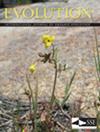Variance Partitioning of nest provisioning rates in blue tits: Individual Repeatability, heritability, and partner interactions.
IF 3.1
2区 环境科学与生态学
Q2 ECOLOGY
引用次数: 0
Abstract
In many animal species, including most birds, parental care is performed by both parents, which has important implications for mate choice (good parent hypothesis) and parental investment strategies. Partitioning the variance in measures of parental care into heritable and non-heritable components is important to understand the evolvability of parental investment and its potential role in mate choice. We employed an automated system to monitor provisioning behavior at 817 blue tit nests over 10 years (totaling ~3 million visits). Daily provisioning rates of males and females were moderately repeatable between years (Radj = 0.16 and 0.15 respectively), which was almost entirely explained by additive genetic effects. While this degree of heritability is sufficient for parental investment to respond to selection, we argue that the modest level of repeatability provides limited potential for a 'provisioning phenotype' to be used as a criterion in mate choice. Daily visit rates were positively correlated between pair members, but after accounting for shared environmental factors this relationship became clearly negative, thereby providing support for models of partial compensation. Visit rates also differed substantially between years, and between days within a year. Thus, it is important to account for these variables when comparing parental investment between individuals. Our results highlight the interplay between genetic, social, and environmental influences on provisioning behavior.蓝山雀巢供给率的差异分配:个体重复性、遗传性和伙伴间的相互作用。
在包括大多数鸟类在内的许多动物物种中,父母双方都会进行亲代照料,这对配偶选择(好父母假说)和亲代投资策略有重要影响。将亲代照料措施的变异分为可遗传和不可遗传两部分对于了解亲代投资的可进化性及其在配偶选择中的潜在作用非常重要。我们采用自动化系统监测了817个蓝山雀巢10年来的供养行为(总计约300万次)。雄鸟和雌鸟的每日供给率在不同年份之间具有中度重复性(Radj分别为0.16和0.15),这几乎完全可以用遗传效应的叠加效应来解释。虽然这种程度的遗传性足以使亲本投资对选择做出反应,但我们认为,适度的可重复性为 "供给表型 "作为择偶标准提供了有限的可能性。配对成员之间的每日探视率呈正相关,但在考虑了共同的环境因素后,这种关系明显变为负相关,从而为部分补偿模型提供了支持。不同年份之间以及一年内不同天数之间的访问率也有很大差异。因此,在比较个体间的亲本投资时,考虑这些变量非常重要。我们的研究结果突显了遗传、社会和环境对供给行为的相互影响。
本文章由计算机程序翻译,如有差异,请以英文原文为准。
求助全文
约1分钟内获得全文
求助全文
来源期刊

Evolution
环境科学-进化生物学
CiteScore
5.00
自引率
9.10%
发文量
0
审稿时长
3-6 weeks
期刊介绍:
Evolution, published for the Society for the Study of Evolution, is the premier publication devoted to the study of organic evolution and the integration of the various fields of science concerned with evolution. The journal presents significant and original results that extend our understanding of evolutionary phenomena and processes.
 求助内容:
求助内容: 应助结果提醒方式:
应助结果提醒方式:


